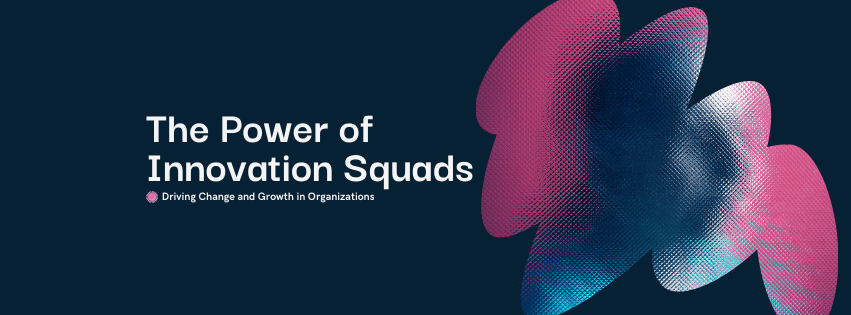Embracing the Journey of Learning: The True Essence of Intelligence
In an era dominated by rapid information exchange and surface-level interactions, one profound truth stands out: “Intelligence isn’t about having all the answers; it’s about knowing how little you know.”
This perspective invites us to embrace a journey of lifelong learning, where humility, curiosity, and critical thinking become our guides. This post will explore the transformative power of adopting a learning mindset, its implications for personal and organizational growth, and how leaders can create environments that foster continuous learning.
The Journey of Learning: A Pathway to Growth
Opinions Become Insights
Our opinions are often shaped by our experiences, education, and the information we consume. However, as we engage in lifelong learning, these opinions evolve into informed insights. This transformation occurs when we challenge preconceived notions and seek new perspectives.
Actionable Tip: Engage in discussions with individuals who hold different viewpoints. This practice broadens your perspective and enhances critical thinking.
Simplicity Turns Complex
True understanding often unveils the complexity hidden within simplicity. The more we learn, the more we grasp the intricate connections underlying seemingly straightforward concepts.
Actionable Tip: Break complex problems into smaller components. Analyze each part to uncover how they interconnect and influence one another.
Humility Grows
One hallmark of intelligence is humility—recognizing that no one has all the answers. This mindset encourages openness to new ideas and learning from mistakes.
Actionable Tip: Regularly practice self-reflection. Assess your beliefs and remain open to adjusting them based on new evidence or insights.
Critical Thinking Thrives
Critical thinking enables us to navigate today’s complexities. It involves evaluating information objectively and making reasoned conclusions. Lifelong learning sharpens this essential skill.
Actionable Tip: Develop a habit of questioning assumptions. When evaluating information, ask: What evidence supports this claim? Are there alternative explanations?
Open-Mindedness Develops
Open-mindedness enriches personal growth. By embracing diverse viewpoints, we deepen our understanding and foster empathy.
Actionable Tip: Challenge yourself to read content from authors with opposing viewpoints. This practice refines your beliefs and expands your perspective.
Characteristics of a Wise Mind
A wise mind embodies traits that facilitate continuous learning and growth:
Embraces Uncertainty
Uncertainty is a natural part of life. A wise mind approaches it with curiosity rather than fear, unlocking new possibilities.
Actionable Tip: When facing uncertainty, focus on what you can control—your response. View challenges as opportunities for growth.
Seeks Continuous Learning
Lifelong learning enriches our lives. Whether through formal education or informal experiences, this commitment broadens horizons and fosters adaptability.
Actionable Tip: Dedicate time each week to personal development—attend workshops, enroll in online courses, or explore books in areas of interest.
Questions More, Asserts Less
Wise individuals prioritize inquiry over assertion. By asking questions, they foster dialogue and deepen understanding.
Actionable Tip: Practice active listening in conversations. Focus on understanding others’ perspectives before formulating your response.
Welcomes Diverse Viewpoints
Diversity of thought drives innovation and problem-solving. A wise mind actively seeks varied perspectives.
Actionable Tip: Collaborate with individuals from diverse backgrounds to gain fresh insights and ideas.
Evolves Understanding
Understanding evolves with new knowledge and experiences. A wise individual adapts and remains open to change.
Actionable Tip: Maintain a learning journal to document insights, reflections, and your evolving understanding over time.
The Organizational Impact of Continuous Learning
When organizations adopt a culture centered around learning, the benefits are transformative:
Better Collaboration
Teams that value diverse perspectives foster open dialogue and build trust, enhancing collaboration.
Enhanced Innovation
Continuous learning empowers employees to experiment without fear, driving innovation and creativity.
Stronger Relationships
A culture of humility and open-mindedness nurtures respect and support among team members.
Inclusive Problem-Solving
Welcoming diverse input leads to comprehensive solutions for complex challenges.
Greater Trust
Leaders who model and encourage learning foster trust within their teams, creating a positive and productive work environment.
Leadership in a Learning Culture
Leaders play a pivotal role in cultivating continuous learning within organizations:
Embrace Complexity
Leaders must acknowledge and embrace the inherent complexity of challenges. This mindset inspires teams to tackle problems collaboratively.
Encourage Diverse Opinions
Creating an environment that values diverse opinions requires intentional effort. Leaders should actively solicit feedback and appreciate varied perspectives.
Foster a Culture of Learning
Providing opportunities for professional development—through training, mentorship, or access to resources—ensures continuous growth.
Conclusion: Knowledge Is Power—Use It Wisely
Intelligence is not about possessing knowledge but recognizing how much there is yet to learn. By embracing humility, critical thinking, and open-mindedness, we unlock our potential and contribute meaningfully to the world around us. For organizations, fostering a culture of continuous learning leads to innovation, trust, and long-term success.
Let us remember: Knowledge is power, but only when used wisely. Embrace the journey of learning today and embark on a path of growth and transformation.
References
- “How Humble Leadership Really Works” – Harvard Business Review
- “Unlock Creativity and Innovation as a Leader” – Forbes
- “How to Improve Your Critical Thinking Skills” – Psychology Today
- “The Practices That Set Learning Organizations Apart” – MIT Sloan Management Review


